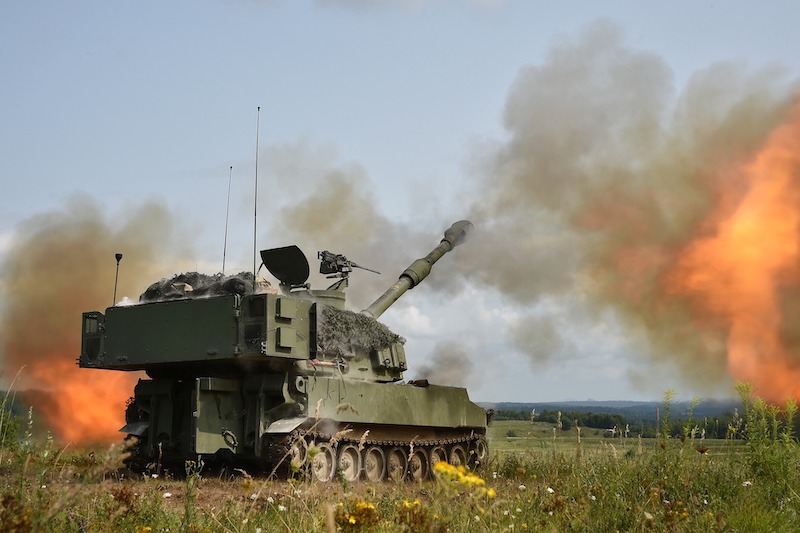 China-Taiwan Conflict
China-Taiwan Conflict China can use Artificial Intelligence (AI) to destroy Taiwan's control centres in future conflict: Report
Under the shadow of a constant cross-strait threat to Taiwan, China can make use of Artificial Intelligence (AI) to achieve precision in artillery attacks in future conflict with the former, according to a report in The EurAsian Times.
In July last year, a Beijing-based science team reportedly conducted several AI-powered laser-guided artillery rounds tests, the report said, adding that these tests were conducted by a team of researchers led by Professor Wang Jiang from the Beijing Institute of Technology, who noted their findings in a paper published in the peer-reviewed journal Acta Armamentarii on April 6.
“Artificial intelligence is evolving quickly. More researchers are applying the technology to trajectory planning problems,” said Jiang in the paper.
According to the claims made by Jiang’s team, their AI-powered laser-guided artillery was able to hit human-sized targets 16 km away, and the precision achieved in the tests was much higher than that of any other artillery systems in the PLA’s service, the portal reported.
"The photos of these tests show the shells had hit the bull’s eye. Traditional artillery shells usually land 100 meters or more away from the target, and guided artillery can make course adjustments during flight. Their accuracy has been limited because of the vast amount of real-time data that must be calculated using traditional mathematical models," it said.
According to Jiang, AI offers the potential for faster data-processing speeds than traditional mathematical methods.
"So, once an AI-enabled smart shell is launched, it will have to quickly gather and analyze a wide range of environmental data to adjust its course. The number of calculations can increase exponentially with the number of variables," it said.
"However, the computer chip inside the shell must be as simple as possible to withstand vast amounts of heat and the shock of artillery fire. While accommodating these requirements, processors often discard important raw data to complete the calculations in time, which impacts their overall accuracy," it said.
"But in the case of AI, even a slow computer chip can finish necessary calculations using nearly all available data. According to the researchers, it can bypass some of the more demanding calculations performed as part of traditional mathematical models."
China-Taiwan Conflict
Taiwan has been governed independently from mainland China since 1949. Beijing views the island as its province under its "One China Policy", while Taiwan — a territory with its own elected government — maintains that it is an autonomous country but stops short of declaring independence.
Beijing opposes any official contacts of foreign states with Taipei and considers Chinese sovereignty over the island indisputable.
The basis of China’s claim over Taiwan dates back to 1945 when Japan lost its control over the island post-World War II.
The 1949 Chinese civil war led to communists taking control and Chiang Kai-shek the one who lost fled to Taiwan. He ruled it for many decades. This is where China’s claim to Taiwan emanates.
The very fact that Chiang Kai-shek came to Taiwan and was not indigenous to the place is Taiwan’s argument against the claim.
Support Our Journalism
We cannot do without you.. your contribution supports unbiased journalism
IBNS is not driven by any ism- not wokeism, not racism, not skewed secularism, not hyper right-wing or left liberal ideals, nor by any hardline religious beliefs or hyper nationalism. We want to serve you good old objective news, as they are. We do not judge or preach. We let people decide for themselves. We only try to present factual and well-sourced news.







